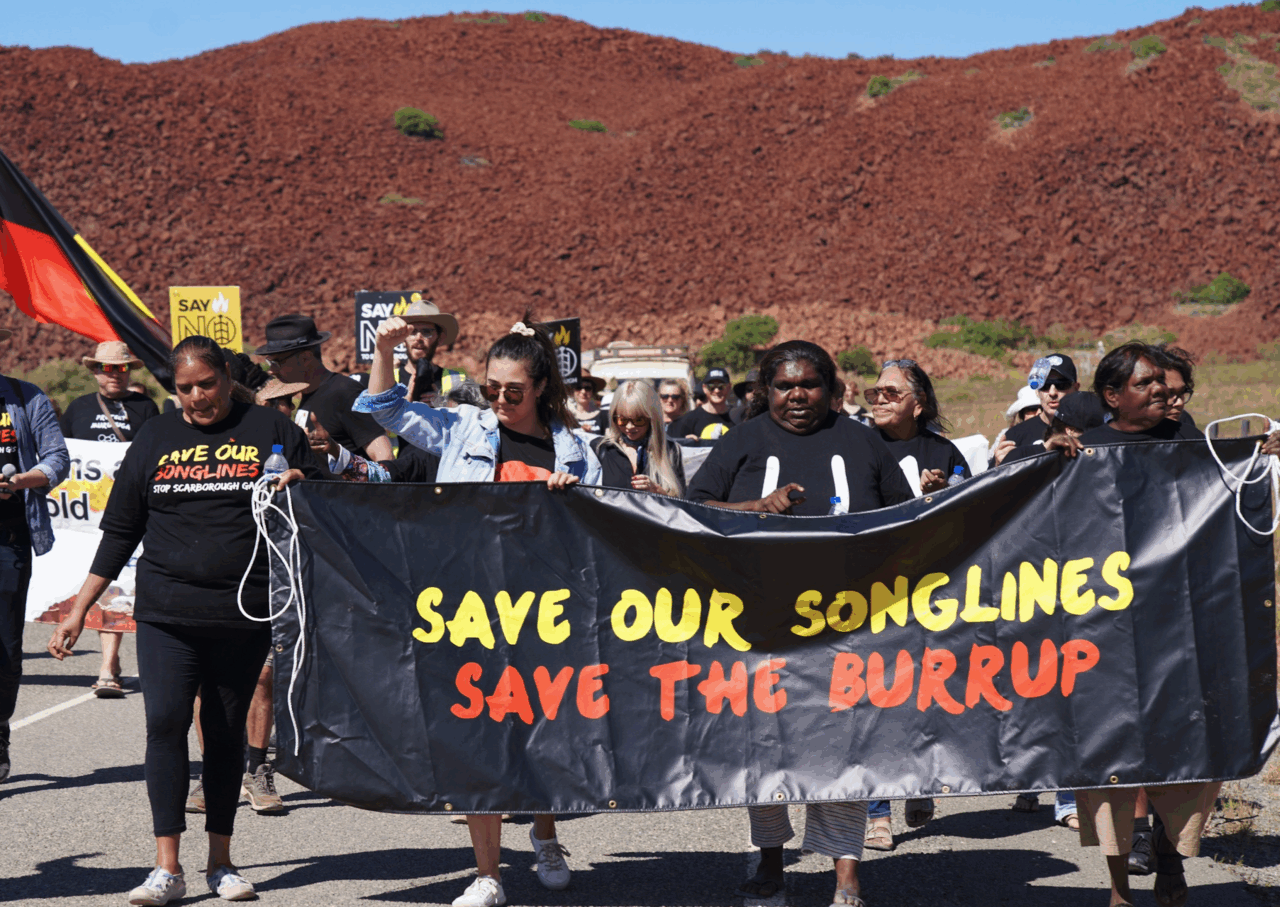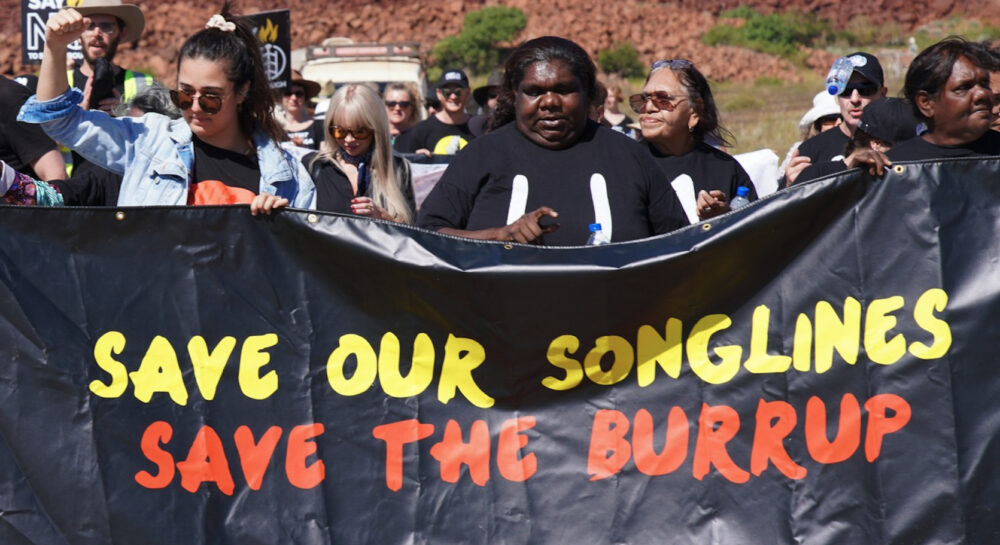Don Sutherland sees the Environment Protection Reform Bill as one in a long line of acts by colonial and post-colonial governments to open access to First Nations Country for expropriation and exploitation.

Labor’s proposed environmental law reforms, now before the Senate, are about economics for profit not just the environment. A closer look at the bill and Minister Murray Watt’s commentary shows a framework designed to improve private sector access to First Nations’ Country, adding a new twist to a long history of expropriation of Country that started with the British use of military and para-military force against its original human inhabitants.
The government is pushing to pass the Environment Protection Reform Bill 2025 by year’s end, citing investment uncertainty in critical minerals, housing and renewables. Minister Watt said last week: “The longer this bill takes to pass, the more investment uncertainty is created … and that means the loss of jobs for Australians.”
Business groups like the Minerals Council of Australia, which are lobbying intensely for the bill’s swift approval, agree, while seeking further advantage, calling for the ‘streamlining’ of approval processes.
As part of the critical minerals and rare-earths deal with Trump’s USA, many have noted that environmental protections must be able to be lifted for matters of “national interest”, that the bill seeks to introduce. Refining of rare-earths can be very harmful to the environment.
And in seeking to “streamline” and update National Heritage and Commonwealth Heritage processes, the bill seeks to weaken the current environmental protection regime’s already inadequate capacity to help communities slow down and present alternatives to corporation’s access to and control of Country. The Business Council seeking of “certainty” means exactly this.
Change and continuity: a new expropriation regime
Australia’s history since British occupation, starting with military and para-military force, is one of successive regimes enabling business access to and exploitation of Country. The dominant coal and iron ore regime is passing, just as the pastoral regime did before it. Labor’s new framework helps the next wave of capitalist development, focused on critical minerals and a “Made in Australia” processing strategy, thus maintaining the lineage of history. Fundamentally, the state again is setting how nature is subjected to future requirements to maintain capitalism.
First Nations: reform still being done to them
The bill’s treatment of Aboriginal and Torres Strait Islander peoples is superficial, at best. The main bill offers a single, weak reference to Aboriginal and Torres Strait Islander influence, falling well short of effective rights that make Aboriginal decision-making paramount on their Country. This aligns with the desires of the Liberal-National parties, One Nation, and major business councils, for the development process.
Minister Watt’s wedge politics
Minister Watt has adeptly framed the debate to appear balanced for an imagined “middle Australia”. His “extremes”, standing in the way of Labor’s “reasonable and balanced progress”, are the Greens and the LNP. He highlights consultations with First Nations groups on the ABC, while on Sky News he emphasises opportunities for mining corporations, welcoming the Minerals Council’s support, and open to the extra changes they seek. This dual narrative deliberately wedges the LNP and the Greens and, also criticism from within the broad labour movement about a bill that ultimately improves business objectives, and does not advance the future for nature.
Samuel legacy: Labor’s continuity with the LNP
Watt repeats that Labor’s “reforms” match the recommendations of the Samuel Review of the Environment Protection and Biodiversity Protection Act of five years ago, set up by the former LNP government. This should ring alarm bells. The report’s author, Graeme Samuel, is a renowned corporate lawyer and former ACCC chair appointed by the Howard government, a figure who has long served big business and is an expert running government institutions for capital’s interests. Labor’s plan is a continuation of LNP intentions.
Environment vs economy: a false dichotomy
It is naive to see these proposals as primarily environmental. The bill largely carves out action on climate change, perversely leaving that to other law and bodies rather than reinforcing their intent. “Consultation” rights for communities might be streamlined but critics reveal ambiguity and new complexity relative to what business gets. This is a legitimate concern for the Labor environmentalists, trade unionists, Greens and other environmentalists. Watt’s mantra of a “better deal for the environment” may well be quite the opposite.
The worst mistake for the bill’s opponents is to argue within Watt’s framing as summarised above. The real conflict is, and will be, between big business and nature, which includes people and communities and the society in general. Opposition must speak to a vision of “ecological full employment” and democratic ecological economics as necessary development to rescue nature upon which our future depends.
The union movement’s sad silence
So far, the ACTU has been conspicuously silent, failing to see the link between this law and the democratic and just green transition in their own policies. By not engaging, the union movement permits big business to position itself as the champion of workers and employment. This is a dereliction of responsibility. The working class has a distinct, vital interest to replenish nature, as our health and livelihoods depend on it, and we are a part of it. To hand this interest over to capitalists, equating workers’ needs with business requirements, is a serious mistake. To assume that good jobs cannot be developed in any other way except improved business control over nature is just wrong.
Producing society’s needs through socially useful, skilled jobs, while simultaneously, protecting and nurturing Country is vital economic activity, fundamentally different from creating new corporate profit opportunities. The legacy of unionists like Jack Mundey shows how workers’ control can be stitched into protecting both nature and community, pointing toward socialist economics with an “ecological heart” and a democratic bloodstream.
A strategic shift
The interaction of crisis in the nature’s web of life, propelled by climate heating, with downward pressure on living standards require a strategic political alliance between the labour, environmental, feminist and peace movements. This is the necessary progress against profit-first forces.
The hatreds between the Greens and the ALP are petty and self-indulgent within that framework. Any Labor or Green tendency that stirs that hatred walks into capital’s arms and diminishes the future we want for our children and theirs.
To counter laws like this that empower capital, the labour and environmental movements must insist on working together, with Aboriginal and Torres Strait Islander organisations and unions, members of the Greens, the ALP and leftwards from there, advancing the democratic green transition that replenishes nature. Anything less is marking time, at best.

